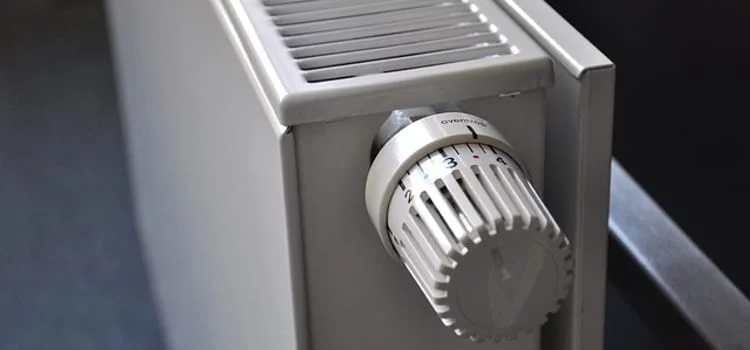
If you have high heating bills throughout the year, you should have a look to see if your boiler is efficient. Non-condensing boilers have an efficiency rating, so how much useful heat is created through a unit of gas, of around 60%-80%. This means that every-time your boiler is on, 20%-40% of gas used is simply wasted. A new condensing boiler on the other hand only wastes around 9%. However, these are expensive and can cost up to £3,000 for a straight swap! So what else can you do if that is out of your price range, or you just want to get the most efficient system possible?
Radiator reflectors – prevent heating the street
These really do work. For radiators that are on external walls – which more often than not they are because of them being situated below windows to promote convection – heat is given off all around, which unfortunately means that 50% of leaves the back of the radiator. Most of this heat then goes straight through the walls of the property, especially if it is an insulated solid brick property like the majority of UK homes. Radiator reflectors work by stopping this heat transfer and reflecting it back into the room, meaning you don’t have to have your heating on for as long and you can lower the temperature of your radiator if you have a thermostatic radiator valve.
Bleeding your radiator – increase your radiators’ performance
If your central heating system was installed with air in the system, or if it has a very small leak, which allows air to penetrate into it, air may build up in the top of radiators. This massively hinders the power of the radiator and may cause your boiler to work harder in order to heat your home. An extremely easy way to prevent this, or fix it, is to bleed your radiators occasionally. All you need to do is use a radiator key to gently twist the valve at the top of the radiator – making sure the heating is off and you have a bucket underneath to catch any drips – you should hear it start to hiss. As soon as water starts to come out make sure you close the valve off again. The next time your heating is on, you should feel the heat return to the top of the radiator.
Installing thermostatic radiator valves – control the temperature
Heating controls are great ways of saving money. Not only do they limit the amount of heat and therefore gas used by the boiler, but they also increase comfort within the home. Thermostatic radiator valves control the temperature of each individual radiator, perfect for when your radiator is oversized, or if your rooms are not always used. By turning down individual radiators when they aren’t needed, or when they don’t need to be on full blast, the hot water doesn’t need to travel through the radiator and so doesn’t lose as much heat. This means that the boiler doesn’t need to work as hard to reheat the water.
Radiator fans – boost convection
Radiator fans are micro fans that are placed on top of radiators, with the idea that boosting convection will reduce the need for them to be on as long, and therefore use less gas. These Radfans, to use the name of the model that we provide, use extremely low wattage fans that only come on when a certain temperature is reached. As soon as radiator reaches the optimal temperature, the Radfan springs into life and blows the hot air from the radiator further into the room. This boosts the room’s temperature consistency and reduces hot and cold spots, increasing comfort and reducing heating bills.
Radiator additive – increase the efficiency of your central heating
Standard central heating systems transfer the heat from water within the radiator system to hot air. However, water has been found to lack certain efficiencies within the system. Adding radiator additive to your central heating system can help to change the heat transfer properties of the liquid. This makes the central heating liquid heat up quicker and stay hot for longer. Because of this, the temperature set by your thermostat will be reached quicker, meaning your boiler doesn’t have to be working for as long, therefore giving you savings.
Don’t have to spend thousands to lower your heating bills
So reducing your heating bills doesn’t necessarily mean spending thousands of pounds of a new condensing boiler, or expensive insulation. The above methods of increasing the efficiency of a central heating system are all below £100 and can have a payback of around only 12 months.

Think I’m going for the Radflek, but isn’t it easier to just put tin foil behind? Suppose tin foil might not last very long.